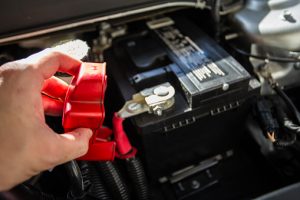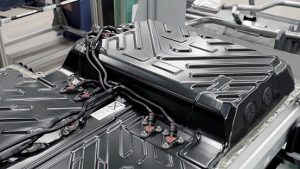The continuing maintenance of an automobile involves several distinct aspects. The majority of vehicle owners are familiar with doing routine inspections, replacing worn-out equipment, and keeping fluids in good condition. Battery care is one common maintenance task, though.
Maintaining the health of your car’s battery is crucial to maintaining it in good functioning order. Simple battery repair usually involves little to no effort. Keeping your battery in good functioning order has other advantages, too. The significance of battery maintenance, its advantages, and what you can do to make sure your car’s battery operates correctly all year long are covered in this article.
The Rewards of Regular Battery Maintenance
If we just made the effort, we might all appreciate the advantages of giving our cars the proper maintenance! There are a lot of reasons to take good care of your car’s battery, but the primary ones are as follows:
Reduces Replacement Costs
The less worried you are about your car battery dying and requiring emergency replacement, the better. If you don’t take the essential precautions to ensure that the battery lasts as long as possible, replacement prices could spiral out of control!
Increases vehicle dependability
The electricity required to start and maintain the operation of your car comes from its battery. Usually, the battery dies when we most need our cars, forcing us to contact a kind neighbor for a jump. Your car’s performance and power delivery will remain dependable and constant if you completely avoid this hassle.
Prolongs the life of the vehicle
Simply put, keeping the battery healthy makes it live longer! Additionally, a healthy battery relieves additional strain on other engine parts and power sources like the alternator. This lowers replacement expenses while also increasing the overall longevity and value of the car, which can be difficult to find these days.
Promotes Traffic Safety
Drivers have been forced to pull over on the side of the road in peril due to dead car batteries, putting them in a perilous situation. On lengthy car excursions, a dead battery might sometimes leave you stuck. This is not just a hassle, but it’s also dangerous.
In the Southwest, a car battery typically lasts two to three years. High summer temperatures have a much greater tendency to shorten the life of your battery than low winter temperatures do. To maintain your battery charged and ready to go, there are some things you can do all year round. How to prevent an unplanned dead battery:
Avoid taking frequent, short journeys; these interfere with your battery’s ability to recharge as your car travels down the road. Short-distance driving causes the battery’s voltage to gradually decrease to the point where it is unable to assist in starting the automobile. Driving your car more frequently and for longer periods of time will help you keep the battery charged. Consider investing in a battery charger/tender to assist save voltage if this is unavoidable.
Turn off interior lighting, headlights, and other amenities when the engine is not running to use as little power as possible. Make sure all the lights are off before leaving your automobile. The majority of current cars have lights that shut off on their own, but check to be sure yours does first before assuming it does, or you risk returning to a car that won’t start!

Drive Your Car – Over time, lead-acid batteries inevitably lose charge. This is known as self-discharge and is typical. At room temperature and temperatures above 85 degrees Fahrenheit, the charge decreases at a rate of around 1% per day and 1.5 %, respectively. The rate of discharge is accelerated by a drain on your electrical system, a short or parasitic draw, which is frequently brought on by a short circuit or an electrically dependent item left on, such as the glove compartment light, switch, or the trunk light. Connect your car to a tender charger to keep the battery charged if you want to leave it idle for longer than a week.
Reduce Heat Exposure: Extreme heat is particularly damaging to batteries because it accelerates water evaporation from cells, including sealed-top batteries. Lead-acid batteries are used in many automobiles, and while some evaporation is natural, excessive heat accelerates the process. When feasible, park in the shade or in a garage to lessen exposure to the sun. In order to prevent the battery from absorbing heat from the engine, which also creates an enormous amount of heat, insulate the battery.
Keep Battery Tightened: Excessive vibration and movement can harm internal parts, causing short circuits and the death of the battery. Make sure the appropriate clamps are used to secure your battery. You run the risk of the battery shorting out on the nearby metal and igniting a fire if the battery is not secured, and you hit a significant bump, had to slam on the brakes, or were in an accident. Additionally, avoid overtightening the clamps to avoid harming the battery.
Maintain Your Battery’s Cleanliness — Make sure the battery’s surface is dust-free, dry, and clean. When a battery is unclean, it might discharge across the dirt on the case, resulting in a short circuit and a loss of charge. Additionally, battery terminals degrade with time. Disconnect the cables before cleaning them, then use a steel brush to scrub the inside of the connectors and the outside of the terminals.
Some Battery Maintenance Advice
We are aware that drivers frequently put off performing routine auto maintenance until they are stranded in their driveway or by the side of the road due to a dead battery. Fortunately, with the assistance of a knowledgeable auto shop, the majority of battery-related problems may be avoided with routine, easy maintenance.

Find a reliable auto repair facility that specializes in your make and model of vehicle to ensure that your battery is maintained according to manufacturer’s specifications and that the right replacement parts are used. Keep the battery cables clear of rust, debris, and corrosion to prevent them from becoming ineffective. Keep an eye on the battery fluid level and top it off as needed. The battery voltage and charge should be periodically checked, as well.
